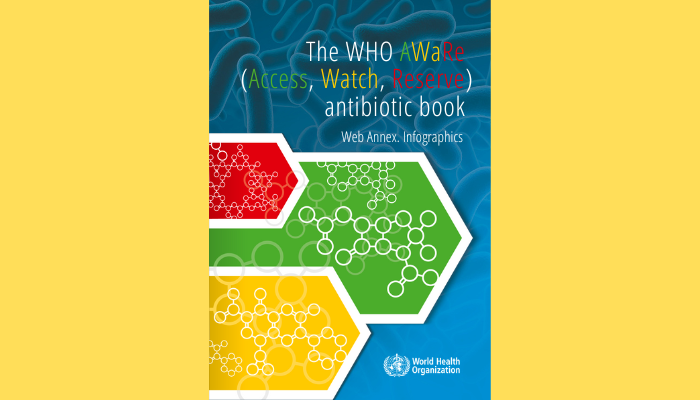McMaster researchers help overhaul WHO antibiotic guidelines

The new Access, Watch, Reserve (AWaRe) Antibiotic Book aims to help clinicians prescribe the correct type and dosage of medications for the 30 most commonly seen infections in children and adults.
The World Health Organization (WHO) is releasing its latest guidelines on antibiotic use for health-care providers, for which McMaster University researchers led by Mark Loeb played an important role.
The new Access, Watch, Reserve (AWaRe) Antibiotic Book aims to help clinicians prescribe the correct type and dosage of medications for the 30 most commonly seen infections in children and adults.
The WHO also launched a free web and mobile app for the AWaRe guidebook on Dec. 8, through health technology company Firstline, based in Vancouver.
It comes as the WHO is warning of the growing danger of anti-microbial resistance (AMR) worldwide, driven by both the overuse and incorrect use of antibiotics. The WHO says AWaRe will offer clear guidance to clinicians working in low or middle-income countries, where such recommendations are often lacking.
“This book is an extremely important step in providing practical guidance for antibiotic use to a global audience,” said Loeb, a professor of pathology and molecular medicine at McMaster.
Loeb added that the best antibiotics for AWaRe were chosen by analysing the results of randomized control trials.
Prescribing antibiotics correctly can be complex, but the WHO says that AMR kills five million people per year, making it more deadly than malaria and HIV/AIDS combined.
“Stewardship is an essential component in the global response to AMR, alongside drug discovery and increased access to medicines,” said Clive Ondari, the WHO’s director of health product policy and standards.
“The AWaRe Antibiotic Book is an important and immediately actionable reference. The app-version on Firstline significantly increases access, and we hope it will be used by prescribers everywhere.”
Mike Long, Firstline’s chief clinical officers, said that “Free access to the WHO’s gold standard global guidance through Firstline is a watershed moment for many doctors looking for the best prescribing guidance for antibiotics.”
“National action plans on AMR have existed in many countries for years – but using the WHO’s prescribing guidance is an action that doctors in every country can take today, to play their own part in the fight against AMR and begin to move the needle on AMR,” he said.
Related stories
New approach means faster understanding in public health crisis
Antibiotics discovered that kill bacteria in a new way
Category, Knowledge Translation
